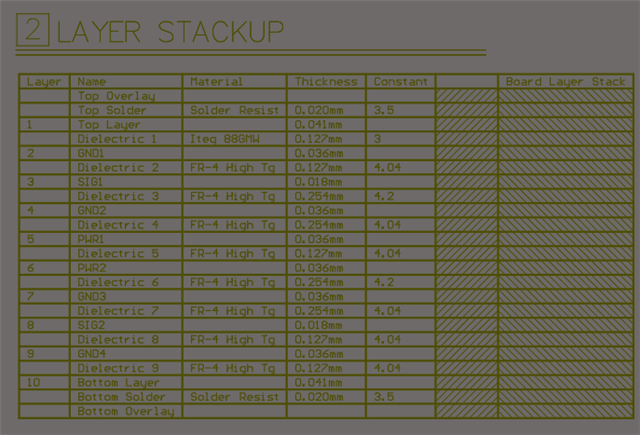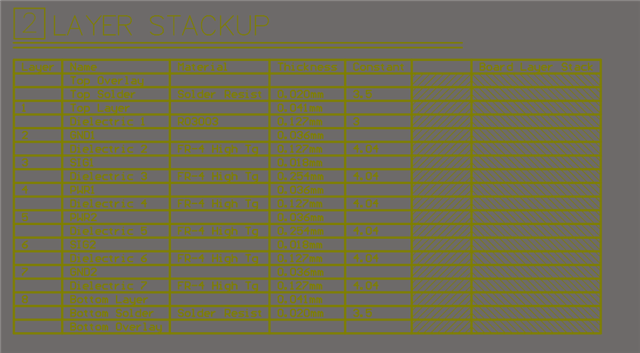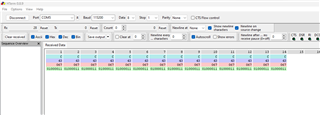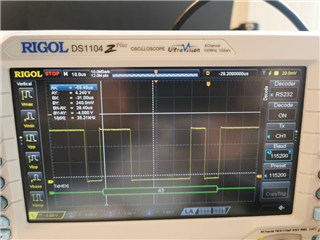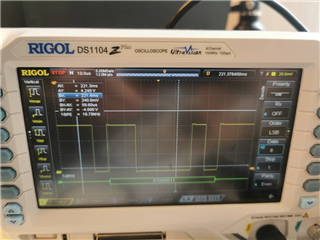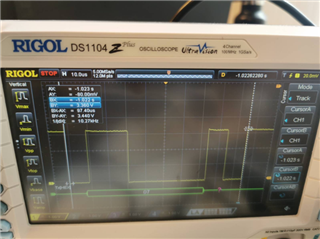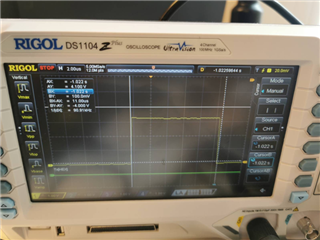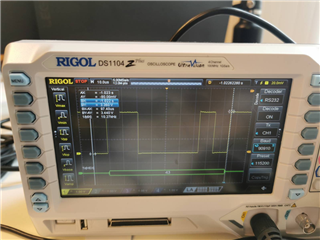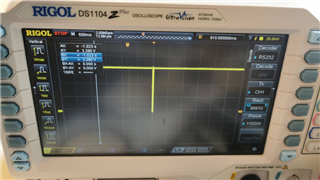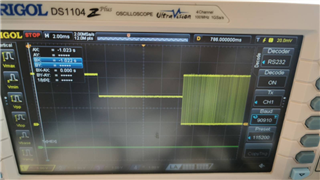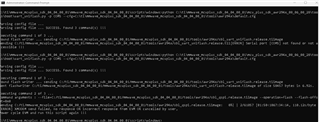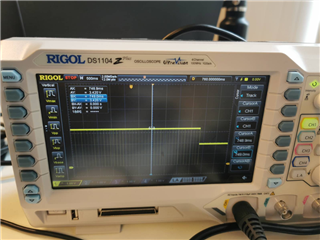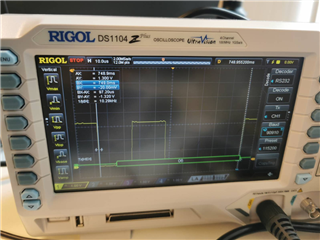Other Parts Discussed in Thread: , UNIFLASH, DP83TC812R-Q1
Hi,
We have designed a custom board based on the AWR2944EVM board. While we can flash the AWR2944EVM ok using the J8 USB port and XDS110 debug probe, we are having issues doing this on the custom board. I was able to flash the XDS110 MCU ok with the latest firmware using the steps listed here - https://software-dl.ti.com/ccs/esd/documents/xdsdebugprobes/emu_xds110.html. However, when I try to flash the AWR2944 chip from command line, using the uart_uniflash.py script provided in the SDK, I get the below:
C:\ti\mmwave_mcuplus_sdk_04_04_00_01\mmwave_mcuplus_sdk_04_04_00_01\scripts\windows>python C:\ti\mmwave_mcuplus_sdk_04_04_00_01\mcu_plus_sdk_awr294x_08_06_00_28\tools\boot\uart_uniflash.py -p COM8 --cfg=C:\ti\mmwave_mcuplus_sdk_04_04_00_01\mmwave_mcuplus_sdk_04_04_00_01\tools\awr294x\default.cfg
Parsing config file ...
Parsing config file ... SUCCESS. Found 3 command(s) !!!
Executing command 1 of 3 ...
Found flash writer ... sending C:/ti/mmwave_mcuplus_sdk_04_04_00_01/mmwave_mcuplus_sdk_04_04_00_01/tools/awr294x/sbl_uart_uniflash.release.tiimage
Sending C:/ti/mmwave_mcuplus_sdk_04_04_00_01/mmwave_mcuplus_sdk_04_04_00_01/tools/awr294x/sbl_uart_uniflash.release.tiimage: 0%| | 0/58457 [00:00<?, ?bytes/s]send error: expected NAK, CRC, EOT or CAN; got b'\x07'
send error: expected NAK, CRC, EOT or CAN; got b'\xff'
send error: expected NAK, CRC, EOT or CAN; got b'\x07'
send error: expected NAK, CRC, EOT or CAN; got b'\xff'
send error: expected NAK, CRC, EOT or CAN; got b'\x07'
send error: expected NAK, CRC, EOT or CAN; got b'\xff'
send error: expected NAK, CRC, EOT or CAN; got b'\x07'
send error: expected NAK, CRC, EOT or CAN; got b'\xff'
send error: expected NAK, CRC, EOT or CAN; got b'\x07'
send error: expected NAK, CRC, EOT or CAN; got b'\xff'
send error: expected NAK, CRC, EOT or CAN; got b'\x07'
Sending C:/ti/mmwave_mcuplus_sdk_04_04_00_01/mmwave_mcuplus_sdk_04_04_00_01/tools/awr294x/sbl_uart_uniflash.release.tiimage: 0%| | 2/58457 [00:21<344:09:14, 21.20s/bytes]
[ERROR] XMODEM send failed, no response OR incorrect response from EVM OR cancelled by user,
Power cycle EVM and run this script again !!!
I have tried some of the suggested fixes from other similar threads on the forum (e.g., https://e2e.ti.com/support/sensors-group/sensors/f/sensors-forum/1101390/awr2944evm-soc-initialization-binary-flashing-issue/4081913?tisearch=e2e-sitesearch&keymatch=%22XMODEM%20send%20failed%2C%20no%20response%20OR%20incorrect%20response%20from%20EVM%20OR%20cancelled%20by%20user%22#4081913) without success:
- Checking if flash device is compatible - we use the GD25B64ESIGR, which is functionally almost identical I think to the GD25B64CWAG listed in this document and used on eval board, https://www.ti.com/lit/an/sprach9d/sprach9d.pdf?ts=1685036305246&ref_url=https%253A%252F%252Fe2e.ti.com%252F.
- Tried using Uniflash to flash instead of command line (same result as above).
- Checked device version and looks to be similar to that used on AWR2944EVM board (AWR2944EVM board device markings = XA2944 / BG / 15ZCSS9 / 987, custom board device markings = XA2944 / BG / 1AZCRV9 / 987).
- No point trying to flash from different computer as I can flash AWR2944EVM board successfully from this computer.
- Tried using different versions of the mmWave SDK, e.g., mmwave_mcuplus_sdk_04_02_00_02, mmwave_mcuplus_sdk_04_04_00_01.
- Tried using flashing files attached in above forum thread (sbl_qspi.release.tiimagesbl_uart_uniflash.release.tiimageawr2944_ccsdebug.appimage).
Note that we didn't make any changes to the scripts before flashing. Also, I tried on a 2nd custom board that we had fabricated/assembled and got an identical result to the above there.
I also rechecked the schematic/layout and I don't see any differences in this section of the board from the AWR2944EVM board. Do you have any ideas on what the issue may be?
Kind regards,
Peter.


